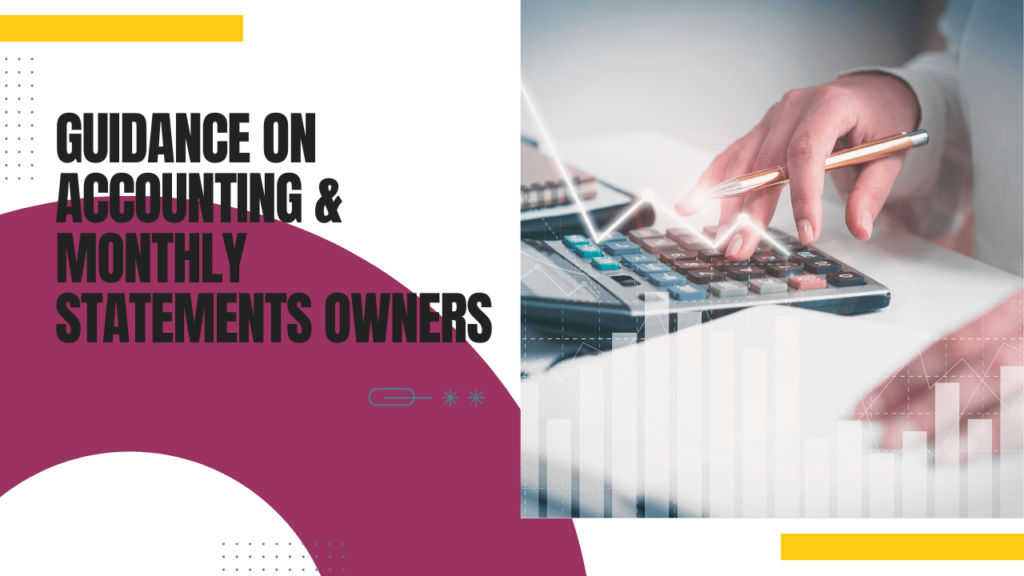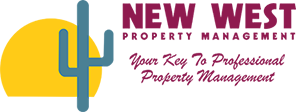
Staying ahead of your finances is an important part of successfully managing your investments. While it’s not always easy to get excited or motivated by accounting and bookkeeping, they are important functions in ensuring your property earns what you expect. You have to know what’s coming in and going out, otherwise your finances are chaotic; unknown at best and detrimental to your portfolio at worst.
Good accounting practices will ensure you’re compliant with all regulations, best practices, and of course tax filings. More importantly, good accounting allows you to make informed decisions about your investment properties and your next moves. You need accounting and record keeping processes in place if you want to know exactly where you stand financially.
Most investors we work with did not begin investing in real estate to become a full-time accountant. This is one of the advantages to working with a Las Vegas property management team. When you partner with a full-service property manager, you can expect all of your accounting and bookkeeping to be taken care of for you. All your challenges of time, resources, and technology will be solved because your property management team will offer you monthly accounting statements when rent is paid, and you’ll also receive ongoing financial reports. You’ll have expert bookkeeping and a documented online snapshot of your income and expenses at any given moment.
If you’re managing on your own, however, you’ll need a good system for accounting, monthly statements, and other financial records. One crucial aspect of your financial record-keeping will be generating monthly reports that demonstrate what your rental property or properties earned, and what you had to spend on them in that same amount of time.
Here’s our best guidance to Las Vegas landlords on good accounting practices and accurate monthly reports.
Educate Yourself on Accounting Basics
Before delving into monthly reports and making any progress in using the information you can mine from them, it’s important to understand some basic accounting principles.
Accounting is a system used to track financial transactions, such as rent payments, maintenance expenses, and mortgage payments. There are several instruments used in most accounting systems:
- A balance sheet is used to show a snapshot of a property’s or a portfolio’s financial health at a specific point in time.
- An income statement shows how much revenue and expenses accrued over a period of time.
By keeping accurate and organized records of your rental property’s finances, you can make sure that you’re making informed decisions and maximizing profits. You won’t lose money simply from inattention.
The most basic part of your accounting plan is the tracking of rental property income and expenses. You can’t make much progress if you don’t know what you’re earning every month in rent. The income statement is critical because you need to know what you’re spending on vacancy, maintenance, and professional services. You’ll need this information on both your balance sheet and your income statement for taxes, for audits, and for any different financing you’d like to do.
When you want to sell a property, you especially need to know your numbers.
Accounting for income and expenses must be clear, accurate, and transparent. It does not require a complex system, especially if you’re only renting out one or two units or homes. But, you have to be consistent and you have to understand the data you’re collecting and recording.
Working with an accountant or a CPA can give you access to a great resource. But, you’re likely the one who collects rent and pays for repairs. Make sure you can clearly see what you’re earning and what you’re spending on a monthly, quarterly, and annual basis.
Monthly Financial Reports: What Kind of Information Do You Need?
Monthly reports should contain a variety of important financial information, including:
- The amount of rent collected
- Any additional payments with the rent, such as pet fees or late fees
- Outstanding debts
- Expenses incurred
- Maintenance costs
Additionally, it’s important to note any vacancies, repairs that are still needed but have not been paid for yet, or other updates related to the property. As property managers in Las Vegas, we provide this information in tremendous detail to our investors and our rental property owners. We know that not only is the information valuable, but that it also helps us build trust and credibility with our owners. You don’t need to prove anything to yourself as an independent landlord, but it does help you to have these accessible records in place in case you are ever asked to provide them by a government entity, a business partner, or a future buyer.
Use Accounting to Budget for Short and Long Term Expenses
Budgeting is important for any business owner, and when you’re renting out properties, you’re essentially running a business. When you have a solid and reliable system in place for collecting information on your finances and documenting your income and expenses, you can do a better job budgeting.
Prepare to budget for maintenance, vacancy, and tenant turnover. We always recommend that owners set aside a maintenance reserve, which will help you prepare for large expenses. Save a portion of your monthly rent in case a new water heater is needed or the air conditioning goes out. By looking at what you have coming in, you can decide how much you’re comfortable saving for those maintenance repairs and replacements in the future. You’ll also feel less stressed when an emergency does occur.
Track your budget and make adjustments as necessary. For example, inflation has driven the cost of labor, materials, and supplies to new levels this year. Be prepared, and make room in your budget so you’re not at a disadvantage when things cost more next year and the year after.
Choosing the Best Accounting Software and Leveraging Technology
While it’s possible to create monthly reports manually, it can be time-consuming and prone to errors. The days of a legal pad, a paper ledger, and even an Excel spreadsheet are long over. The entire industry has been modernized, and you should take advantage of some of the great systems and platforms that are out there.
Choosing a reliable accounting software can streamline the process and make it easier to generate reports. Many of these programs offer automatic tracking of transactions, generate financial statements, and offer budgeting tools. It’s important to research and choose a software that integrates with your current systems, is user-friendly, and meets your specific business needs.
Think about how you are tracking your finances now and whether it’s working for you. Unless you have made some updates recently, you can likely benefit from an overhaul and a bit of new tech. Ideally, you’re working within an accounting system that can integrate other parts of your leasing, management, and maintenance needs. Update your accounting systems as much as you can. Invest in a software program that makes you more efficient. There are platforms for large management companies like ours and for individual landlords who are renting out one or two homes.
Tax Time Needs Accurate and Detailed Documentation
A lot of tax benefits are available when you own rental property in Las Vegas. Make sure you’re taking advantage of every tax benefit that you’re entitled to, otherwise you’re essentially leaving money on the table. As a rental property owner, you’re likely reporting rental income on the Schedule E of IRS Form 1040. Your rental property accounting systems should be designed for easy reporting.
Set up your tax accounting in categories for rental income and expenses that break out into maintenance, professional services, refunds, advertising, mortgage interest, HOA fees, etc. Make tax time as easy as possible. Good financial reporting will facilitate that.
The Benefits of Working with Professionals: Hire a Property Manager or an Accountant
 If accounting and financial reporting seems overwhelming or outside of your skillset, consider hiring a professional accountant or a CPA. These experts can help you keep track of your finances, prepare monthly reports, and offer guidance on financial planning and tax implications. This can provide peace of mind and ensure that you’re meeting all legal requirements and maximizing your profits.
If accounting and financial reporting seems overwhelming or outside of your skillset, consider hiring a professional accountant or a CPA. These experts can help you keep track of your finances, prepare monthly reports, and offer guidance on financial planning and tax implications. This can provide peace of mind and ensure that you’re meeting all legal requirements and maximizing your profits.
There’s also the option of Las Vegas property management. Your management company will have someone responsible for taking care of all the financial reporting and accounting that’s associated with your property. We’ll stay organized and consistent in our accounting and financial reporting.
If you’re inclined to keep it all to yourself, set up a system and stick to it. You can reduce errors, identify areas where costs can be reduced, and improve your overall financial health. Consider creating an accounting calendar or setting reminders for monthly or quarterly reports to ensure that you’re staying on track.
Monthly financial reports are an important part of rental property ownership, and understanding basic accounting practices can help you maximize your profits and build credibility in your rental business. By including important financial information and using reliable accounting software or professionals, you can streamline the process and stay organized.
Would you like some accounting help? Please contact us at New West Property Management. Our team expertly manages residential rental homes in Las Vegas and throughout Clark County, including Henderson and North Las Vegas.
